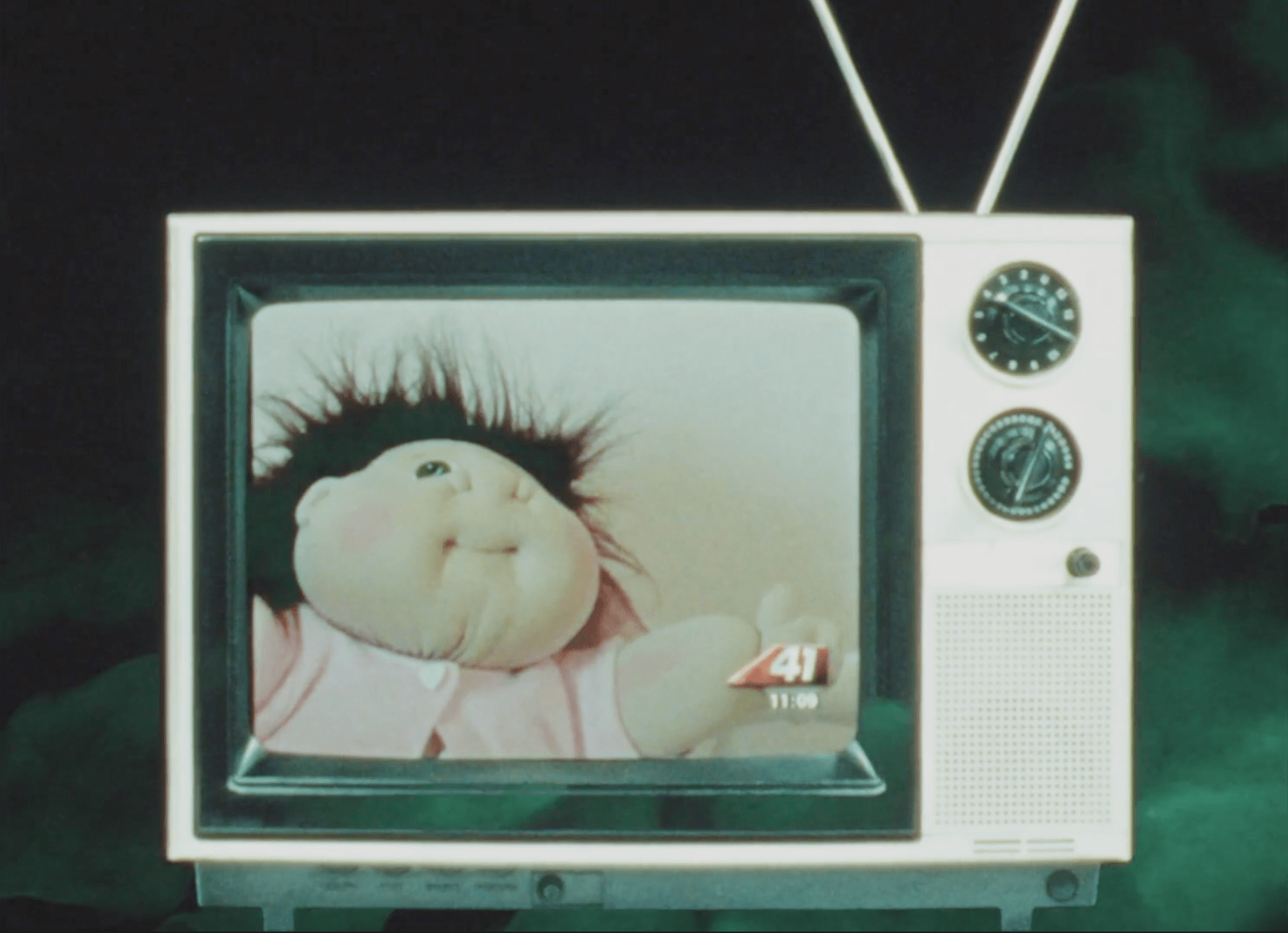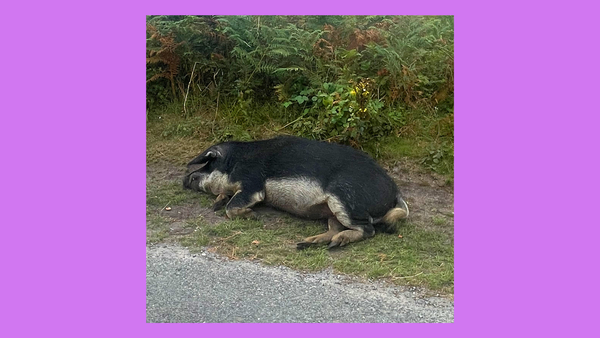Mother Cabbage is ten leaves dilated
Kate E. Hinshaw on her documentary short film about childbirth and Babyland General Hospital

In France, babies are born from cabbages. There’s a saying, “mon petit chou,” a term of endearment that literally translates to “my little cabbage.” Babies emerging from cabbage patches adorn old postcards and birth announcements. Kate E. Hinshaw wasn’t sure what to make of this baby origin story until she got in touch with a folklorist in Utah who mentioned that storks—the subject of a much more common baby delivery myth—do not migrate in France.
But why cabbages? “It could be anything from it being yonic to, in the Middle Ages, people believed that if you ate cabbage, it promoted fertility,” Hinshaw told me. There’s an old wive’s tale, probably unrelated, that you can use boiled red cabbage as a makeshift fetus gender test. Mix the mother’s urine and the cabbage water. A pink or red result means you’re having a boy; purple means a girl. According to the first result for “cabbage gender test” on Google, this test is “at least 55% accurate.”
And then there are Cabbage Patch Kids, the infamous doll brand that reached peak popularity in the mid-80s. Like French babies, Cabbage Patch Kids are born out of a head of cabbage. I mean this quite literally—if you go to Babyland General Hospital in Georgia, you can watch as Mother Cabbage gives birth to a hand-sculpted Cabbage Patch Kid underneath the branches of the Magic Crystal Tree.
In her short documentary film Ten Leaves Dilated, co-directed with Ebony Blanding, Hinshaw weaves together all of these threads, along with the actual birth stories of women from across the American South, into a surreal collage of found footage and experimental techniques that help reveal the disconnect between our fairy tales and the candid realities of childbirth.
I called Hinshaw a few weeks ago to discuss the film and caught her on a drive back to her native Atlanta, which is only two hours from Babyland General. “I had this memory of going to Babyland General Hospital when I was probably about four or five,” she told me. “I was telling someone about… the animatronic cabbages on the wall. I remember the baby dolls in the hospital beds. They had a little nursery. They were like, ‘Wow, that’s really fuckin’ weird. That would make a good film.’”
As an introvert, Hinshaw “always felt more comfortable socially” if she had a camera around her neck. Initially drawn to the mechanics and technicality of cameras, she became a filmmaker when she realized that she could use film to tell stories “without being the center of attention.”
While she’s not at the center of Ten Leaves Dilated, the film did come from a personal place. “I was a preemie. Growing up, my mother would always tell me, when you were born, you were so little, we had to put you in Cabbage Patch Kids clothing.” Hinshaw was fascinated by the way her mother used Cabbage Patch Kids to talk about her difficult pregnancy and childbirth experience. “I was in my late twenties when I made this film. Just being a woman, [I had] a lot of questions about, okay, do I want to have kids? Is this something I want to go through? I just brought all of that to the table and what came out of it was Ten Leaves Dilated.”

Blanding came on as a co-director to help with on-the-ground interviews, as Hinshaw was based in Colorado during most of the production. They made the choice not to feature traditional talking heads in Ten Leaves Dilated—they couldn’t afford to fly across the South and found that it was easier to get women to open up about their birth stories when they weren’t on camera. Instead, voices flow in and out fluidly, sometimes overlapping. “Everyone’s birth story is so different, and to have this collage of voices, that felt more true to the overwhelming information that you get when you’re pregnant, when you’re going through it.”
The two filmmakers were planning on doing more interviews when the COVID-19 pandemic cut production short. “Last time we went to Babyland, it was literally March 5th, 2020.” Luckily, shooting was mostly completed by the time lockdown rolled around. While COVID didn’t impact the film in a major way, Hinshaw did feel like the pandemic took away from the festival experience; the film has primarily been screened virtually. “The first time I felt like the film was done was when I showed it at Rooftop Films last September. Being able to see people laugh along with it, that was like, okay, the film is done.”
Whether you’re watching it at a festival or at home, Hinshaw hopes you find it funny, but also walk away thinking about childbirth as a whole. “Childbirth is a complex issue, particularly in the South. I think the biggest thing I learned on the film was just how important it is to tell stories around childbirth.”
Nowadays, it’s a bit easier to find clothing made for preemies—parents don’t need to head to Babyland General to shop for their real babies. But the connection lives on. Last time Hinshaw went to Babyland, she overheard a mother and daughter looking at Cabbage Patch Kids diapers. “[The mom] was like, ‘Those are preemie diapers. We can get those at the store.’ I thought that was really interesting.”




